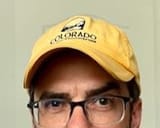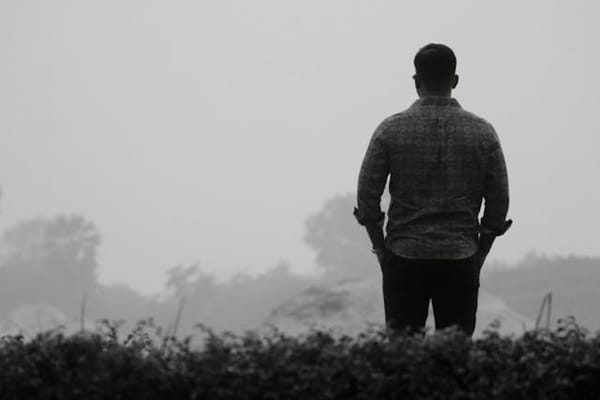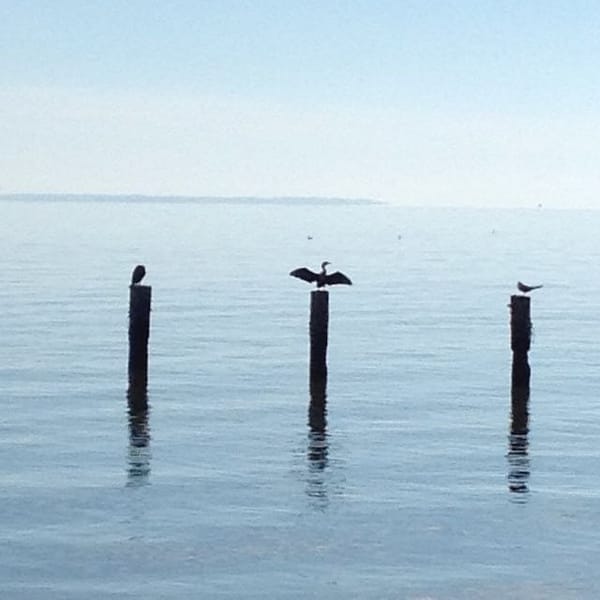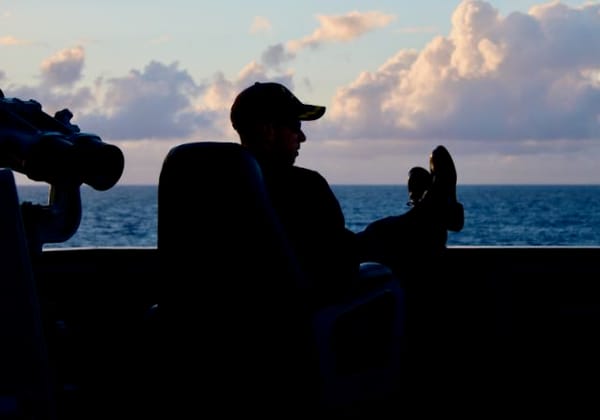Pain, Suffering, Refuge: Intermission
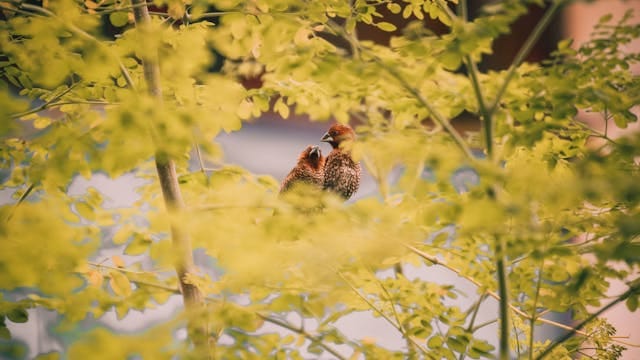
A side conversation, with Tristan and Jude.
Continued from Pain, Suffering, Refuge: Part 1.
Jude stood at the garden bed, tending peppers in the afternoon’s golden hours. By then the shadows stretched over him and the rest of the farm, a contrast to the stunning amber glow of twilight on distant treetops. The peppers left a subtle spiciness in the air, and he smiled. He loved them for what they were – dark green, perfectly mischievous jalapeños – but also for the Pico de Gallo and chipotles they would become.
He found a few sad leaves and reached to his back pocket for his pruning shears.
“I read the post you wrote last week.”
Jude stopped just before trimming a particularly damaged leaf, placed the shears on the soil, and took a deep breath. He peeked over his shoulder and met Tristan’s eyes, smiling. The boy, about ten years old, kept his hands jammed in his jeans pockets, his shoulders rolled forward. Jude saw his narrowed eyes and tight lips under the shade of his Phillies cap.
“Oh, hello, Tristan! And thank you. Did you enjoy it?”
“I thought it was total crap.”
Jude laughed. “I never claimed to be a great writer. I'm just happy you read it and thought about it.”
“Yeah, I thought about it. I think you're blaming the victim. Like, if you're suffering, it's your fault. That’s stupid. People suffer because other people are jerks.” He looked at his shoes, kicked the dirt, then glanced back at Jude. “Let me tell you a story.”
As Tristan spoke, Jude's vision focused on the boy, taking on a sepia tone of old photographs. The raised garden beds dissolved in mist and formed threads that wove themselves together to become like a hanging bed sheet rolling in a breeze. Tristan’s story appeared as if played like a family movie. He heard it and felt it as if it played in his own mind.
He hadn’t lived there long,
That neighborhood, this kid.
Four, maybe five years old,
Standing up against a wall chest high,
action figures in his hands.
Focused only on the toys,
absorbed in stories
Playing from his mind,
though his hands,
into action,
The wall now an ancient other-world.
Nothing else mattered.
The blazing heat of summer’s sun stored in blacktop and concrete.
The chatting people on their stoops.
The neighborhood kids and whispers as they gathered.
From nowhere something pushed his hips,
Shattered stories in his mind,
Living souls becoming plastic in his hands,
A flash of shock in his chest.
A grabbing at his waist and,
in a blink,
A swishing sound as fabric moved against another cloth.
Imagined worlds snuffed out, like
A firefly crushed between kid fingers,
Traces of its glow lingered for a moment then
faded out forever.
He turned around, shorts down around his shoes,
To see an older girl inches away, howling, pointing,
And every kid on the block joining in,
even those he hoped were friends.
The fire of surprise became an icy ball of shame.
He cried and froze.
Four years old.
The sun glinted through his tears,
Blinding him, the world all wet light,
When another hand touched him.
On the shoulder.
Turned him gently,
hid him from the laughs,
put him back together,
and walked him home.
His sister, one year older, held his hand.
The picture faded and the rolling, gossamer sheet became a fog that lifted quickly in the golden evening sun. Tomato leaves shivered and waved on the breeze in the garden bed behind Tristan.
“Call it pain. Call it suffering. Whatever it is, how can you say it’s his fault?” Tristan argued, crossing his arms.
Jude found a spot between the beds and sat down, crossed his legs, and breathed. “Have a seat with me, Tristan,” he offered, his extended arm and open palm indicating a perfect place to sit. Tristan did, hugging his knees.
“No, none of that was his fault,” Jude agreed. “People do terrible things, and every time they do, someone is hurt. No one could blame him for the tears. No one could blame him for the shame. No one could blame him for being suspicious of other people or taking a long time to trust someone as a friend. And no one could blame him for thinking that way through all the years that followed.”
“Right,” Tristan declared. “So why would you tell people their suffering is their fault?”
“It is never our fault. It is something that’s hard-wired into us, like the factory setting of our minds. No one can be blamed for their suffering. But that factory setting can be overwritten, which is something most of us don’t realize is possible. Of course, it’s hard to help adults understand that point, so it’s even more so for a child.”
They sat in silence as the garden rippled in the stretching shadows. Birds called as they finished their errands before dark.
Jude closed his eyes. “For anyone, adult or child, we rely on others to help us when things are hard. In this boy’s case, when it seemed like the whole world rejected him, one person reached out. One person cared. One person eased the pain.
“But he had more than that, if I remember this story correctly. His sister always listened and protected him. His brother always made him laugh. His dad gave his time when he needed attention. And his mom defended him fiercely. None of them were perfect, but in those moments, they eased the suffering.”
“What about the people that have no one?”
Jude opened his eyes to look at the sky, considering this question. Lazy clouds drifted through the darkening blue. “There may not always be someone who can help,” he concluded, meeting Tristan’s gaze. “But there is always someone that needs help. If no one is there to help a person through their pain, they can dedicate themselves to helping someone else. There is always a need.
“That boy’s family could not always be his helpers. Like I said, they weren’t perfect. But when no one could help him, he sometimes helped them, didn’t he? By listening? Making them laugh? He proves that sometimes we need a helper, and other times we can be the helper.” Jude glanced at the ants by his legs, hustling to bring the day’s work home.
“That kind of love, whether between family, friends, or complete strangers always comes back, but maybe not in the form, or by the person, you expect.”
When he raised his head, Tristan was gone.
Jude put his right hand to his chest, a gesture of gratitude, and took a deep breath. He stood, brushed the dirt from the seat of his jeans, took his shears, and carefully cut away the dying pepper leaves.
…To be continued.
This is a work of fiction based on actual events.
Have a question or any feedback? Please leave a comment - I'd love to hear from you!
Note: To leave a comment, please subscribe to the newsletter. Even though it says “sign in” below, this does not require any passwords or new accounts. All you do is enter the email address that you used to subscribe, then the site will send you a confirmation email to that address containing a link back to this site. That counts as your “sign in” and you will be able to join the conversation from there.
Do you like what you’ve been reading? Please consider subscribing to receive every new post directly in your inbox. Click “Sign up now” below, or scroll down to the bottom of the page, enter your email address, then click “Subscribe.” The site will send you a confirmation email to the address you entered with a link to finish the sign-up. The only information you need is an email address, nothing more.
And if you know someone who may be interested, please pass this along!

